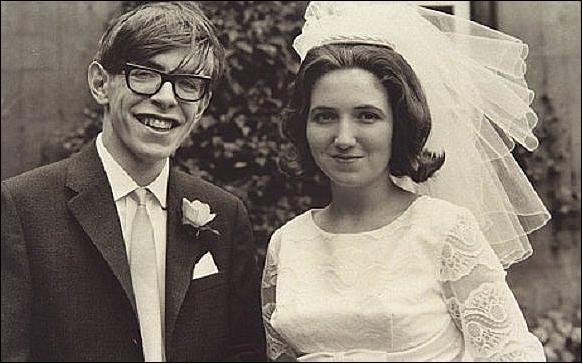
Who is Stephen Hawking?
Stephen Hawking was an English physicist, cosmologist and one of the greatest theoretical scientists in the world. He was best-known for his work on back holes and his research on the theory of relativity and quantum physics. He is the author of the widely read scientific book, A Brief History of Time.
Stephen Hawking was born on 8th January, 1942 in oxford, England, to frank and Isobel Hawking Stephen’s parents were educated and had graduated from Oxford University. His mother was one of the first female students to have studied at such a prestigious collage. His father worked as a medical researcher. Stephen to become a doctor, but from a very young age he had an interest in astronomy.
School Life and Cambridge
For his education, he attended St Albans School. He was an average student in school but always had an interest in science. At the age of seventeenth, he got a scholarship to study at Oxford University. Hawking had always wanted to study mathematics, but the subject was not available in the University, so he chose physics.
He found the course easy to understand. Even is physics teacher at Oxford started that he was an exceptional student. After he graduated in 1962, Hawking attended the University of Cambridge to stud cosmology and astronomy. He completed his PhD in 1965 with breakthrough research.
Professional Achievements and Goals
Hawking started his career in 1968. He was member of the Institute of Astronomy in Cambridge. Hawking was curious about back holes and how the universe was created. In 1973, he went to Moscow. There, he came up with his theory of black holes. After some intense studying, he had come to the conclusion that they released radiation.
With his theory, he became a fellow of the Royal Society the same year. Soon, Hawking received back-to –back significant awards like the Eddington Medal, the Pius XI Gold Medal, the Dannie Heineman Prize and the Maxwell Prize in 1977, he became a professor and taught gravitational physics. In 1979, Hawking was awarded the Albert Einstein Medal. He was also honored with a doctorate by the University of Oxford.
His other major achievements include his mathematical model based on Albert Einstein’s general theory of relativity. In 1988, he published a book called A Brief History of Time and later The Universe in a Nutshell in 2001. Both of his books became bestsellers, and Hawking was counted as one of the renowned cosmologists. Hawking the creation of the universe and the Big Bang theory in his book. The book was translated into thirty languages.
Battle with Cripple And Love Life
It was not an easy road to success for Hawking. He went through many hardships. Hawking was only 21 when he was diagnosed with Amyotrophic lateral Sclerosis (ALS). He was a first-year student at Cambridge University at the time. His motor neuron diseases worsened. He began to trip, dropped items and his speech became unclear. He went through a series of tests, and doctors gave him only who and half years to live.
Hawking was young and ambitious, and the disease didn’t stop him from pursuing his dreams. He was paralyzed for most of his life but he still completed his PhD and released most of his major works during these years. As years passed, Hawking became less mobile and began to use a wheelchair.
Hawking met Jane Wilde right before he was diagnosed with his illness. They got married in 1965 and had three children. However, the marriage ended and in 1995, hawking married Elaine Manson.
Final Days of Life
Hawking not only wrote outstanding books but also appeared in many TV shows as a cameo character like in Star Trek: The Next Generation and The Big Bang Theory. In 2014, a movie based on Hacking’s life was released called The Theory of Everything starring Eddie Redmayne.
In his lifetime, Hawking received many awards. He won the United States Presidential Medal of Freedom, the Wolf Prize and the Russian Fundamental Physics Prize. Hawking died on March 14, 2018, in Cambridge, United Kingdom.
